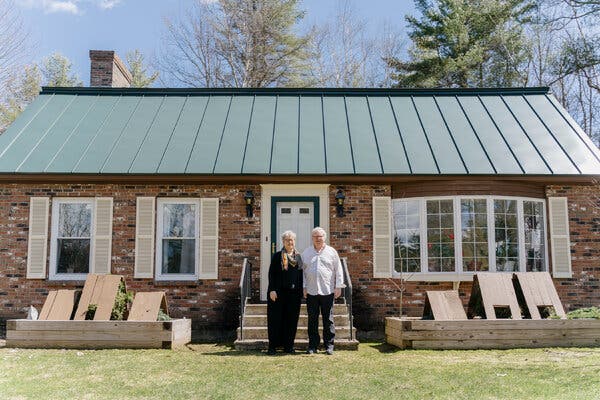Homeownership is not the boon to older Americans that it once was.

When it came to housing, Susan Apel and Keith Irwin thought they had planned adroitly for later life. They bought a four-bedroom house on two acres in Lebanon, N.H., 24 years ago, and “we made sure to pay off the mortgage before we retired,” said Ms. Apel, 71.
That way, the home equity they had built up — they estimate their house is now worth about $700,000 — would allow them to sell and downsize into smaller, more manageable quarters when they needed them.
That time has arrived. Ms. Apel, a retired law professor, is having trouble climbing stairs. Mr. Irwin, 71, previously an account manager for a local business, is wearying of yard work and snow shoveling, and finding workers to do those chores instead has become difficult.
“We’re seeing the writing on the wall,” Ms. Apel said. They have started shopping for “a nice two-bedroom condo with a little den, all on one floor.”
But they can’t find one. Local developers are putting up four-level townhouses with even more stairs. The few suitable one-floor homes available get instantly snapped up. City dwellers fleeing Covid helped pump up housing prices: One unit the couple saw recently cost $950,000 and needed work, Ms. Apel reported. Even “tiny shoeboxes” are selling for $600,000.
“We were very grateful to live in this lovely place and to have paid off our house,” Ms. Apel said. “It never occurred to us that it didn’t give us the ability to move out of it.”

